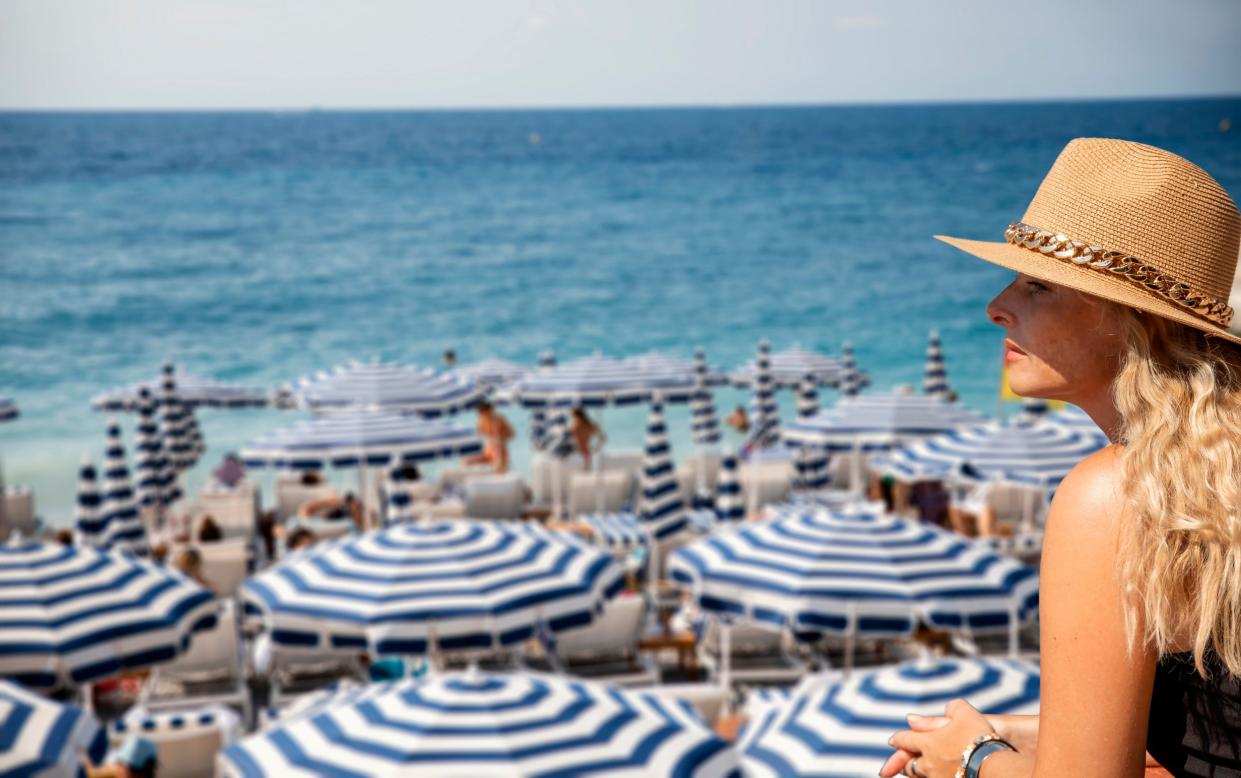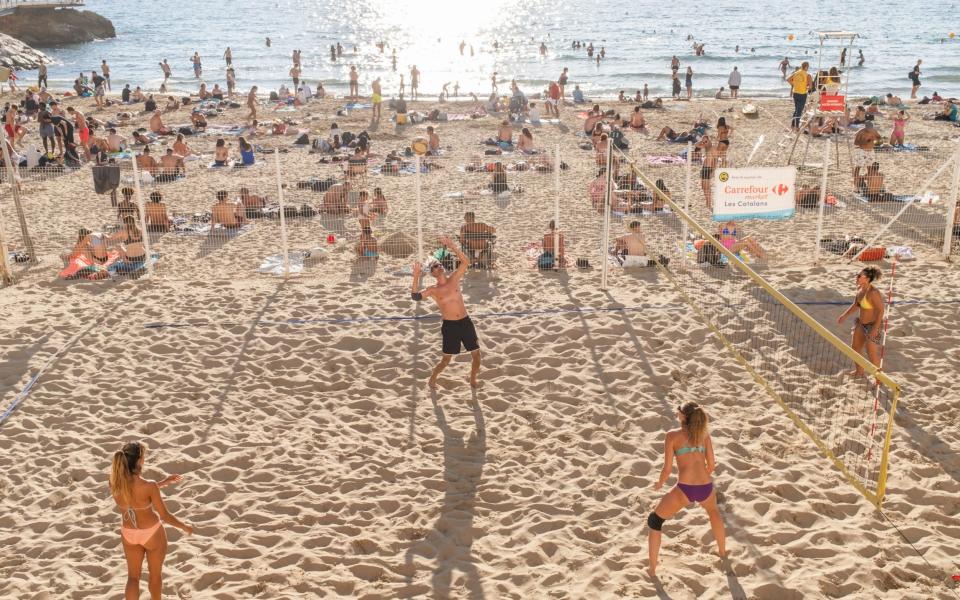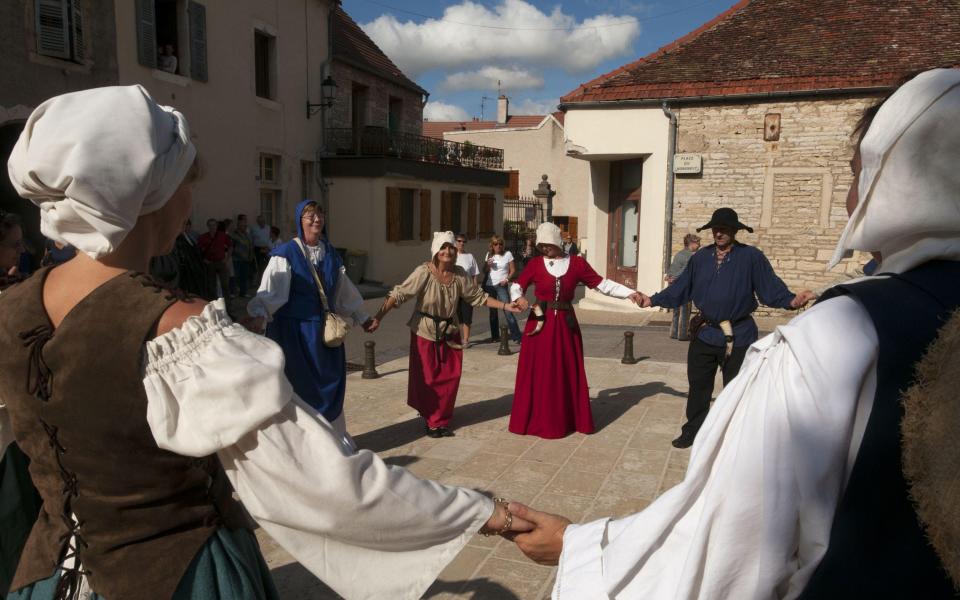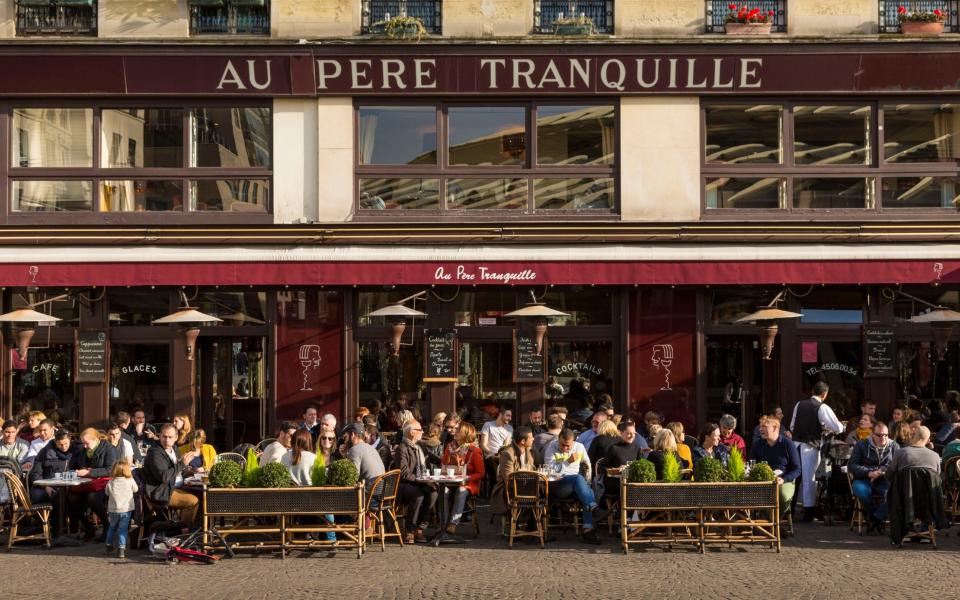Ten ways the UK would improve if the French were in charge

Anyone who went to the cinema to watch Napoleon towards the latter end of 2023 will have been reminded of the emperor’s plans to invade Britain. These didn’t come to much – plans to invade Britain rarely do – but they did exist. They exemplified a long-standing Gallic conviction that Britain would benefit from being run by the French.
Having lived among the French for decades, I suspect the conviction persists. Not as an actual stated policy. There will be no grande armée glowering across the Channel from Boulogne any time soon. Or ever. It’s more an ill-defined sense that the French could manage certain things better. Not everything. Naturally, they’d screw up a lot – pubs, TV, the monarchy, rock ‘n’ roll, jurisprudence, punctuality – but they’d improve other elements of our national life. I must say, I sort of agree on certain points, including the following.
Seaside towns
The French are good at preserving a veneer of class and savoir-vivre about even the most popular of their seaside resorts, the ones where Mr and Madame Jacques Public take their children on hols, whether on the Atlantic or Mediterranean coasts.

Compare and contrast with so many British seaside towns – which seem to have slipped through the time-space continuum to a parallel world of bingo parlours, tack, burger shacks (“three for £1”), fortune teller cabins embellished with fading photos of Mike and Bernie Winters, and markets which would have Eritrean refugees longing for home.
I’d expect French rule to usher in bright seafood restaurants, surfing and diving schools, bars where the clientèle didn’t look as though they’d been thrown out of every other pub in town, markets for others than the desperate and relaxed sauntering in clothes which fit. The imposition of sunshine would, of course, also help.
Really dreadful food
In the not-too-distant past, I’ve been in the Ribble Valley, Yorkshire Dales, the Fylde and Lake District, not to mention South Wales and Hampshire. I ate splendidly most of the time. So I know that, at the top end, and in the middle, of the market, British food holds its own with French. (And, if I didn’t know, I am confident that I’d soon be told.) It’s at the bottom end that things go awry. In France, even if you don’t spend much you usually – not always, but usually – get something edible.

In Britain, you might but you also very much might not. In the zones mentioned above, I have also, occasionally, eaten meals so miserable and drunk coffee so unidentifiable that I don’t wish to think about them. The French would envisage a military solution, sending in armoured food-trucks and crack squads of caterers. I’d pay good money to see them take on certain, especially seaside, cafés, and blow them to smithereens.
Healthcare
By a process too long to go into, France has devised a system where you might consult a real doctor – a flesh and blood person seated behind a desk with you on the other side, just like you see in vintage British films – before the week is out. You might subsequently get the hip replaced, or the leg amputated, before it’s way too late, you decide to cut out the middle man and go direct to the Last Rites.
There’s more, obviously. A lot more. Including the health benefits of the French mastery of dire television programmes. This urges citizens from the settee towards outdoor pursuits, an enormous advantage in keeping le peuple fat-free. The fact, also, that many might work when they feel like it, and retire whenever that gets too much, eases stress, therefore pressure on the health service. Such measures would work wonders in Britain.
X-rated
Almost certainly, and happily, a French takeover would result in less attention being paid to x-rated matters. This isn’t because the French are less active. There’s no evidence for this at all. Really none. Quite the reverse. But somehow the subject isn’t considered newsworthy. That some French people are at it like knives raises no eyebrows.
Simply put, the French are not particularly surprised by sex, conceivably because they lack a tabloid press to raise the alarm. It’s part of the warp and weft of daily life, like driving, shopping and striking. Why would you devote four pages to a sex-rat from Love Island’s dalliance with a voluptuous influencer in Dubai? You wouldn’t. The improvement of our nation’s mental health would ring bells.
City centres
I’d very much expect French rulers to enliven British city centres, many of which, at present (as I’ve observed before), are overwhelmed by charity shops, estate agents and building societies, “all for a pound” bazaars, telephone warehouses, fried chicken joints and pop-up greetings cards outlets.
By contrast, French centres – not invariably, but usually – have retained some proper purpose, with shops selling stuff that people need and want (butchers, bakers, greengrocers, jewellers), markets, family-run restaurants, neighbourhood bars, the whole alive with the thrum of urban life withal. It may be because – almost certainly is because – all the citizens haven’t cleared off to the suburbs. Lots still live in the centres. They need, and generate, life – and, by the same token, don’t cede the centres to drink-addled ne’er-do-wells come evening-tide. I’d be happy to spearhead a task force on this one.

Heritage
The French preserve their heritage as if their nation depended on it. Which, in their view, it does. This can go to extremes. You occasionally have to stop them sanctifying Johnny Hallyday or slapping an order on any wall more than 30 years old. That aside, however they argue that you can’t know where you’re going if you don’t know where you’ve been – and where they’ve been is embodied in all those churches, châteaux, manors, town houses and industrial sites.Which are consequently preserved with gusto. And without embarrassment.
So we might expect an end to the British hand-wringing because the past didn’t observe 21st-century norms. The French don’t fall for such tomfoolery. As every nation’s, their past has dark patches. They recognise the problem. Take Nantes, a city whose grandeur was much financed by the slave trade. They’ve faced this, covered it amid other history in the city museum, installed a magnificent, four-acre planted walk as a memorial to the abolition of slavery, and then got on with life. If transferred to Britain, this might shut up some of our more irritating fellow citizens.

Politeness
With a French take-over, I’d be looking for increased public formality and politeness. A return to “thou” and “ye” would be excessive, but an increase in “good-days” and a decrease in we’re-all-mates mateyness would serve the nation well. As would a concomitant improvement in speech and diction. We’d not need to speak French but would be required to speak English correctly as French people – even in vox pops on TV – generally speak their own language correctly.
People saying “yeah, well, like, it’s like whatev’”, omitting the “t”s in words like “omitting”, or failing to express their joy at scoring a hat-trick in proper sentences, would be required to answer for their actions. As would people who split infinitives, misused the words “hopefully” and “decimated” or said “at the end of the day”. And that would be just a start.
Lunches
Having been reduced in scope since the last century, lunches in general could do with re-lengthening beyond sandwiches and pasta bowls, back to four courses, wine and cheese before pud (cheese after pud making no sense at all). I think the French could manage this. Last week, I was in Narbonne where I learned that the lunches of local lad Charles Trenet – the famed warbler – might last anything from six to 12 hours. And he ended up loaded. There’s a lesson there for our country.

Festivals and fêtes
British festivals are great, if muddy. French ones are less muddy and much more widespread, not least because public money gets pumped in. Culture is deemed a priority. Should similar policies be pursued in Britain, I’d bank on an annual festival in every village, and good festivals, too.
The open-air theatre of our village (population 2,000) has hosted stars of status equivalent to that of Julie Walters or Simon Callow. (Annie Girardot and Michel Galabru, since you ask.) French villages don’t mess about with mediocre. Meanwhile, they wouldn’t reckon much to home-made sponge cakes, performing police dogs and wild flower competitions as constituents of a village fête. Their more full-blooded tendency is towards bull-running, water-borne jousting, eating and drinking until the early hours. I doubt we’d see much opposition to this in Britain.
General knowledge
A while back, I was in a pub in Reading. It was pouring down outside. A regular came in, dripping. “The weather’s turned inclement,” he said at the bar. The barmaid looked astounded. “Christ, who’s swallowed the f-----g dictionary, then?” she cried. British people are at least as bright as the French. We just don’t like to admit it. The French, by contrast, aren’t at all embarrassed about knowing stuff. They don’t colour up if suspected of being acquainted with the work of Voltaire, Victor Hugo or Marie Curie. Or with words like “inclement”. The disdain of cleverness – the elevation of the thick – never caught on across the Channel. I think we might benefit from a bit of that.

